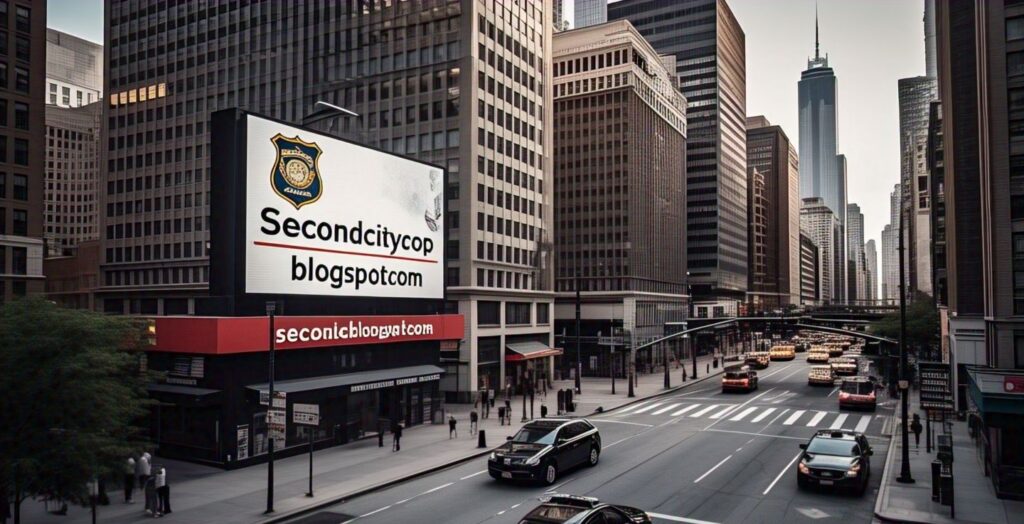
Introduction
The Second City Cop Blog was a popular and controversial platform that provided an insider’s view of the Chicago Police Department (CPD). Known for its raw commentary, anonymous authorship, and unapologetic tone, the blog became a space for law enforcement voices often unheard in mainstream media.
What Was the Purpose of Second City Cop Blog?
The blog was launched to share news, commentary, and opinions directly from officers and those familiar with police work in Chicago. It aimed to offer transparency from a street-level point of view, addressing crime trends, police policies, and city politics in ways traditional news outlets avoided or censored.
The Anonymous Identity Behind the Blog
One of the most unique aspects of the Second City Cop Blog was its anonymous author. This allowed the blogger to speak freely without fear of professional retaliation. Readers found value in the candid posts, which were often bold and politically charged. Anonymity gave the blog both freedom and controversy.
Why Anonymity Mattered in Police Circles
In law enforcement, speaking publicly—especially against leadership or policy—can be risky. The blog gave officers a rare voice to share frustrations, concerns, and behind-the-scenes realities without jeopardizing careers. This freedom allowed for honest criticism of top brass, city officials, and crime-handling strategies.
Coverage of Crime and Corruption in Chicago
The blog covered ongoing crime issues, trends, and major incidents in Chicago. From gang violence to political corruption, it examined the inner workings of city power. The Second City Cop Blog was not just about police—it was about how law, order, and chaos coexisted in Chicago’s neighborhoods.
Notable Topics Featured on the Blog
The blog often highlighted stories the mainstream media missed or intentionally ignored. Topics included mismanagement within the police department, underreported crime statistics, and questionable political decisions affecting public safety. Readers appreciated the in-depth analysis and real-time updates, especially during moments of citywide crisis.
Relationship Between the Blog and the Media
Mainstream media had a complicated relationship with the Second City Cop Blog. While some journalists acknowledged it as a valuable source of information, others criticized it for lacking professionalism or promoting negative stereotypes. Despite this, the blog gained a significant following among officers and civilians alike.
The Blog’s Influence on Public Perception
Though unofficial, the blog shaped public opinion about crime and policing in Chicago. People outside the police department got a glimpse into officers’ realities—both frustrations and fears. It challenged the media narrative and sometimes led to heated public debates over justice, accountability, and policy-making.
The Shutdown of the Second City Cop Blog
In early 2021, the blog abruptly ceased updates, sparking widespread speculation. Some believed increased scrutiny or threats led to its closure. Others thought the author simply chose to retire. Regardless of the reason, the blog’s disappearance left a void in independent law enforcement commentary in Chicago.
Reactions to the Blog’s Closure
Many loyal readers expressed disappointment. Some felt that the city lost an important voice, one that dared to speak truths others wouldn’t. Others, especially critics, welcomed its end, believing it had become too divisive. The mixed reactions proved just how influential the blog had become in its active years.
Legacy of the Second City Cop Blog
Even after its closure, the blog’s impact remains. Many discussions it started continue on forums and social media. Former readers still reference past posts, and new blogs have tried to follow its path. Its legacy highlights the need for platforms where public servants can share uncensored, insider perspectives.
Lessons Learned from Its Existence
The blog proved the value of honest, grassroots-level commentary. It reminded the public that those enforcing the law also have opinions, struggles, and insights. It also revealed the tension between transparency, accountability, and professionalism in law enforcement communications.
Alternatives and Successors in Police Commentary
Since its shutdown, several platforms have tried to capture the same spirit. Social media pages, podcasts, and newer blogs now discuss law enforcement issues with similar tone and intention. However, none have matched the Second City Cop Blog’s unique voice and influence.
Where Can Readers Find Similar Content?
If you’re looking for similar content, police forums, Reddit threads, and specific YouTube channels by former law enforcement officers now carry on the tradition. These spaces offer opinions, news, and commentary from experienced professionals in a public, though sometimes moderated, setting.
The Blog’s Role in Community and Police Relations
While often critical of city policies and sometimes controversial in tone, the blog provided a form of connection between police and the public. It offered a glimpse into the lives of officers beyond their uniforms, highlighting the stress, fear, and pride associated with serving in a high-crime urban environment.
Criticism vs. Support: A Divided Audience
Supporters praised the blog for exposing truths, while critics accused it of spreading negativity or bias. Regardless of opinion, it forced important conversations about police culture, leadership, city crime strategies, and the realities of urban law enforcement in Chicago.
Conclusion
The Second City Cop Blog may no longer be active, but its voice continues to echo in conversations about crime, policing, and politics in Chicago. It showed the power of unfiltered commentary in shaping public discourse. As cities evolve, so does the need for platforms that reveal what’s happening behind closed doors.
Whether you agreed with its tone or not, one thing is certain: the blog left a permanent mark on how people perceive the Chicago Police Department and the city it serves. For many, it was more than a blog—it was a lens into the gritty, complicated world of urban law enforcement.
